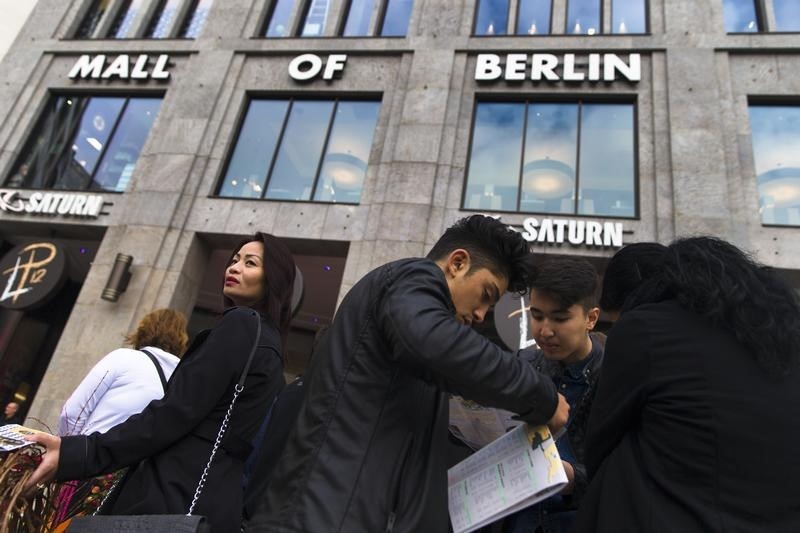By Geoffrey Smith
Investing.com -- German retail sales suffered their sharpest annual fall in decades in June as rampant inflation ate into consumers’ spending power.
Adjusted for inflation and seasonal effects, sales fell by 8.8% from a year earlier, while in month-on-month terms, they fell 1.6%, statistics office Destatis said on Monday. The annual drop was the largest since Destatis started compiling pan-German retail sales data in 1994.
Both figures were well below analysts’ expectations and reflect the impact of the growing energy crisis on Europe’s largest economy.
Unadjusted for inflation, prices fell 0.5% on the month and 0.8% on the year.
The figures make it likelier that the German economy contracted in the second quarter due to the ongoing strains of Russia's war in Ukraine and the U.S. and European sanctions that followed it. Preliminary data released on Friday had suggested it had only stagnated, but the final outcome will depend on a row of numbers due this week, including June data for both industrial production and exports.
Claus Vistesen, an analyst with Pantheon Macroeconomics, said in a note to clients that the "miserable" figures suggest sales fell nearly 4% in the second quarter, after a 0.6% drop in the first quarter.
Destatis' figures pointed to consumers cutting back on discretionary spending to cover rising costs for food and energy. Inflation-adjusted food sales in food fell only 1.6%, while non-food sales fell by 3.3% and sales at gas stations rose by 6.4%, helped by a cut in fuel duty that took effect during the month.
Another notable feature of the report was the continuing slump in online sales, as consumers reverted to pre-pandemic habits of visiting physical stores. E-commerce sales were down 15.1% on the year in June. They are still more than 22% higher than their pre-pandemic level, however.
